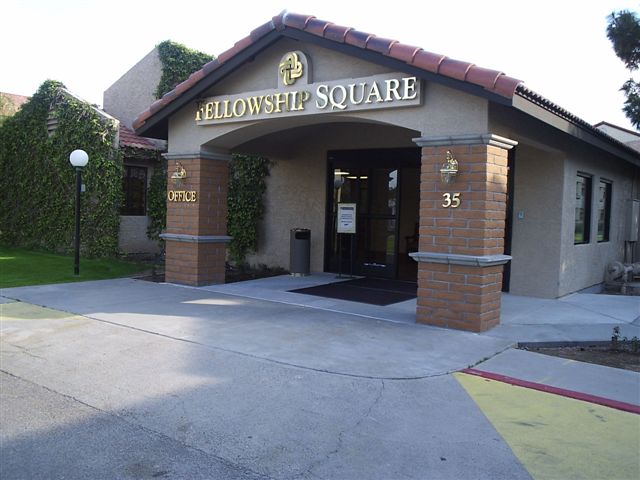During holiday visits, check on the health of elderly relatives
During holiday visits, recognize the signs elderly relatives may need senior living care.
When families gather for the holidays, the attention usually centers on the kids, gifts and food. In all the merriment, remember to take a moment and observe how elderly relatives are managing; it may be time to discuss independent living or assisted living options.
This is particularly important for adult children who don’t see elderly parents every day. Use this time to check how mom or dad are coping physically and mentally. Dr. Robert Roush, a professor of medicine-geriatrics at Baylor suggests, “Over the holiday season, expectations for a great family time are always high; they also give adult children the opportunity to pay close attention to the health of loved ones.”
Yearly holiday visits are a good time to plan annual checkups for parents. Planning ahead and scheduling medical appointments during your visit gives you a chance to accompany them and talk to the doctor. And if needed, it’s a good time to discuss senior living needs, including independent and assisted living options.

Signs that senior living care may be needed
Fellowship Square Historic Mesa, a senior living community in Mesa, Arizona, helps families know when and how to find the right community and care for loved ones. It starts with treating everyone, regardless of age or mental state, with love and respect. As the largest not-for-profit provider of senior living in Arizona, Fellowship Square is dedicated to providing its residents a fulfilling lifestyle while addressing their needs. Families are welcome to tour the community and explore independent living, assisted living, memory care and healthcare service options.
When is the right time to start exploring senior living communities? It is different for every family. The first step is to recognize the need for care. “Holiday gatherings can give adult children a chance to check for less obvious signs that their parents may need help,” says Jennifer FitzPatrick, MSW, in the healthline article “How to Handle Discovering Signs of Dementia During the Holidays." FitzPatrick and other experts suggest looking for these signs in your elderly relatives during visits:
- Do they need to hold onto furniture or the wall when walking?
- Does it look like they’re spending a lot of time in one room?
- Have they lost a lot of weight?
- Have they gained a lot of weight?
- What about hygiene and grooming?
- Are there odors in the home or on their person?
- What about shaving, fingernails, oral cleanliness?
- Is there spoiled food in the refrigerator?
- Is clothing soiled or in need of repair?
- Are there signs or a sense of self-neglect?
- Is the house clean?
- Are bills piling up or left unpaid?
Answers to these questions can help determine if relatives are healthy and safe. When spending time with family during the holidays, also take time to talk to your loved ones about the medications they are taking. Write down the names or take a photo of the bottle so you have a record of their medications.
When is it time to explore senior living options?
If you notice the living situation of an older relative is not meeting their needs anymore, what should you do? Fellowship Square Historic Mesa senior living suggests starting with a calm conversation to assess their needs. This can be overwhelming and a lot to think about during a holiday visit. Don’t make any rash decisions but do address any current needs. DailyCaring suggests these seven steps with aging parents.
-
Assess needs
Think about family support, home safety, medical needs, cognitive health, mobility, personal hygiene, meal preparation and social interaction. Honestly assess how much support is being supplied in each area. -
Think about your own needs and abilities
We all want our loved ones to be safe and healthy. But we’re all not capable to provide the care someone may need. Deciding to seek assisted living or memory care for someone can be difficult. Professional help for determining the right senior living services is often the best decision for you and your loved one. -
Include your loved ones in the process
Be kind and loving. Remember, they are feeling overwhelmed, too. They might even resist in the beginning. As long as there is no immediate danger, go slow and involve them in the process. -
Understand the financial situation
Costs for senior living services like independent living, assisted living and memory care can vary depending on location and need. It’s a good idea to tour a community and understand what is included. -
Take care of home safety basics
Something as simple a rug could be dangerous for certain seniors. If your loved one is staying in their home, consider making some simple fixes to improve senior safety, including clearing clutter and adding grab bars in the bathroom. -
Make sure communication is simple and accessible
Part of being safe is the ability to easily call for help and to keep in touch with family and friends. Make sure phones are easy to use and working. -
Explore available senior living options
What’s the right community and senior services for you and your loved one? Independent Living is for individuals who typically are able to perform everyday tasks. Assisted Living is for seniors who need help with daily tasks and need a higher level of care. And memory care facilities offer care for memory loss and Alzheimer’s.
The holidays can be fun and exciting, especially when visiting family. But it’s also a good time to check in on elderly relatives. If you notice they may need help, Fellowship Square Historic Mesa is here for you and your loved ones. If you have questions or would like more information, please contact us at 480-834-0600 or visit us at FellowshipSquareSeniorLiving.org anytime.

